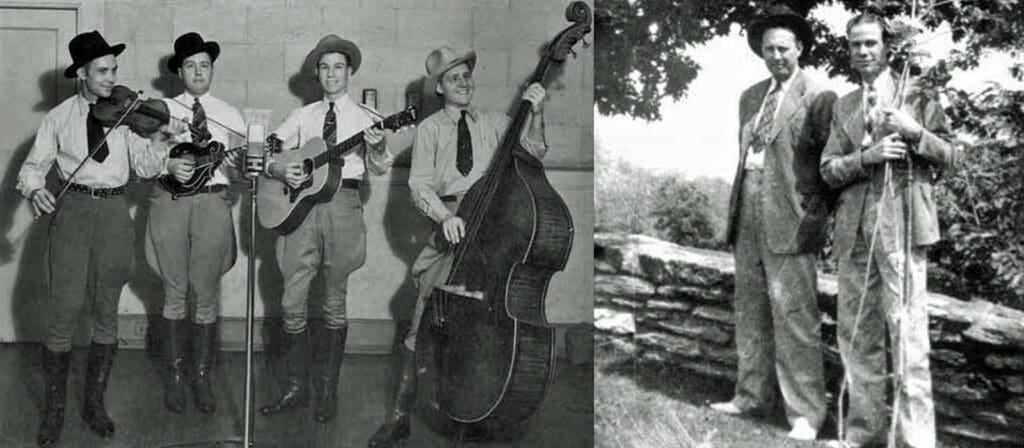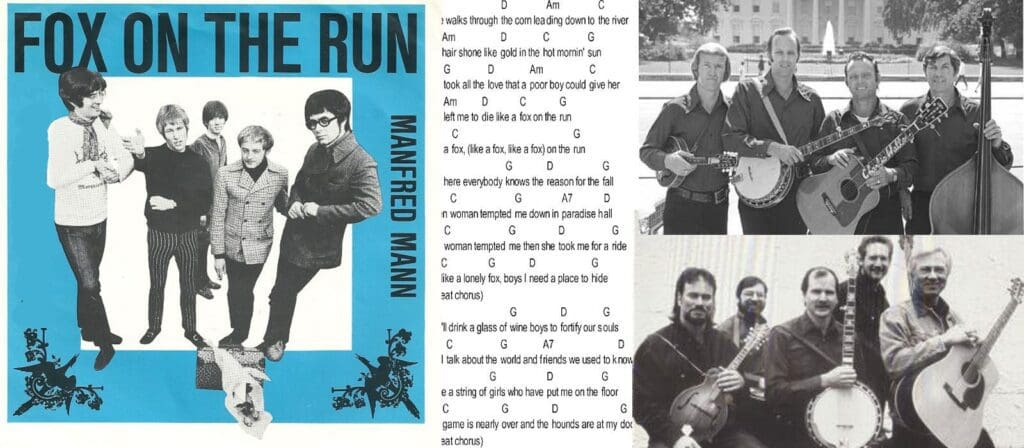Nine Pound Hammer
Written by Wayne Erbsen on November 3, 2020
When discussing the most popular bluegrass songs, “Nine Pound Hammer” nearly always floats to the top. Let’s follow the scent and try to sniff out the origins of this famous tune.
After the Civil War, when able-bodied men were scarce, former slaves and convicts were conscripted to build tunnels and lay track in constructing a network of railroad lines throughout the mountains in the southeast. In the case of the Swannanoa Tunnel in North Carolina, at least 500 black convict laborers were used for this always dangerous and sometimes fatal work. These work crews frequently sang while they worked, and many of their songs were picked up by white musicians who, in turn, passed them down the line.
In this black/white exchange, “Nine Pound Hammer” came to be. As early as 1891, fragments of the song (e.g., “Oh, roll on Johnnie, you rolls too slow”) were collected in Texas by Gates Thomas. In a letter to the Library of Congress dated October 12, 1923, Charles L. Miller of Waycross, Georgia, reported that he’d heard the following verse in railroad and construction camps in West Virginia, Virginia, and Tennessee: “And it’s roll on buddy/What makes you roll so slow?/Your buddy is almost broke down/On the K.N.O.”
The version of “Nine Pound Hammer,” commonly heard in bluegrass circles, can be traced to the May 13, 1927, recording in New York by Al Hopkins & His Buckle Busters for Brunswick. In 1961, Archie Green and Ed Kahn interviewed Charlie Bowman, who played fiddle on this recording. Bowman freely admitted that the band put the song together in Brunswick’s New York studio out of what fragments the band members could remember. The tune bears more than a passing similarity to “Swannanoa Town,” collected in 1916 by Cecil Sharp. There is an entire chapter devoted to “Nine Pound Hammer” in Green’s 1972 book, Only a Miner.
The list of performers who have recorded “Nine Pound Hammer” includes Frank Blevins & His Tar Heel Rattlers (4/17/1928), G.B. Grayson & Henry Whitter (7/31/1928), Ernest & Eddie Stoneman (1/8/1934), and The Monroe Brothers (2/17/1936). It was probably Merle Travis’ reworking of the song for his Capital recording of August 8, 1946, that contributed most to the song still being in active circulation. Performers who incorporated elements of Travis’ version into their recordings would include bluegrassers like Flatt & Scruggs, Reno & Smiley, The Greenbriar Boys, and The Country Gentleman, as well as country musicians such as Johnny Cash, Tex Williams, and Tennessee Ernie Ford.
The lyrics of “Nine Pound Hammer” (below) are the verses as sung by Al Hopkins & His Buckle Busters and the Monroe Brothers. The fifth verse was collected in 1909 in Mississippi by E. C. Perrow. “Wheelers” in verse five are wheelbarrows used to haul dirt and rock after a dynamite blast.
The “Nine Pound Hammer” tab was purloined from my book, Bluegrass Banjo for the Complete Ignoramus. If you’re a banjo player, you’ll notice that the tab seems strangely stark. That’s because I only included the melody in the tab. It’s up to the banjoist to add the rolls. For help, consult my Ignoramus book or my upcoming book, Workbook for Bluegrass for the Complete Ignoramus.
Nine Pound Hammer Lyrics
Roll on buddy, don’t you roll so slow,
Baby, how can I roll when the wheel won’t go?
Somebody stole my nine pound hammer,
Baby, took it and gone, baby took it and gone. (Chorus)
Nine pound hammer just a little too heavy,
Baby for my size baby for or my size.
Nine pound hammer, killed John Henry,
Ain’t a-gonna kill me, ain’t a-gonna kill me. (Chorus)
Goin’ on the mountain, for to see my darlin’,
And I ain’t comin’ back, and I ain’t coming’ back. (Chorus)
Captain, captain! my feet are cold,
Doggone your feet! let them wheelers roll. (Chorus)
Ain’t one hammer in this tunnel,
That rings like mine, rings like mine. (Chorus)
Rings like silver, shines like gold,
Rings like silver, and shines like gold. (Chorus)
Wayne Erbsen is a musician, teacher, radio host, author, and publisher. Check out his songbooks and instruction books for bluegrass and clawhammer banjo, fiddle, mandolin, guitar and ukulele at www.nativeground.com





